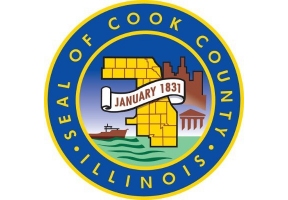By the Office of Cook County Treasurer

Since I first stepped into my office 27 years ago, one question has repeatedly come up: “Why do my property taxes always go up?” It’s a valid concern.
At the heart of the answer is something called the tax levy. Simply put, a tax levy is the amount of money local governments—such as school districts, municipalities, and park districts—request through property taxes to fund their operations. I’ve tried to make the tax levy understandable by developing a “Where Your Money Goes” tool on both my website, cookcountytreasurer.com and on second installment tax bills. The tool lists all 14 taxing districts and the portion of tax liability you’re responsible for paying. So, when you analyze that list or see new projects like the building of a new fire station or the construction of a new road, you’re also seeing how funds raised by the levy are being used.
The proportion of the levy you pay on your property tax bill is directly related to the assessed value of your property. To illustrate, imagine a local government wants to build a new swimming pool. In that case, you might pay an extra $10 for every $1,000 of your property’s assessed value. That means a homeowner with a million-dollar house would pay four times as much as someone with a $250,000 property for the new pool.
Levies can either be temporary or long-term. Temporary levies fund one-time projects like building an outdoor fitness court for a local park district. Long-term levies are used to fund essential services — like public health or teacher salaries. Tax levies usually depend on public approval, so your involvement in local referendums plays a critical role in determining your property tax amount. These ballot measures are often proposed by taxing bodies to see if the community is willing to support funding for specific services. In most cases, if a majority of voters approve, the tax levy goes up as do your property taxes.
Yet, voter participation in these referendums is low. In our recent Pappas Study, less than half of eligible voters weighed in on new bond issuances and tax hikes totaling more than half a billion dollars. This lack of voter participation led to the passage of three of every four referendums — meaning a small fraction of the electorate decided that taxes would increase for everyone. Most proposals for new services are worthwhile, but there are always more ideas than money. That leads to questions: Should we fund new a new health clinic or give an old school a facelift? Do we want some of these services, all of them, or none of them? Your votes provide the answers. Despite that in the April 1 Consolidated Election in Cook County, just 17% of voters weighed in on a variety of ballot measures directly affecting their property taxes. So, I hope I’ve helped show how much the levy and your vote really matter. Because with the levy, it’s your tax dollars that are really on the line.








